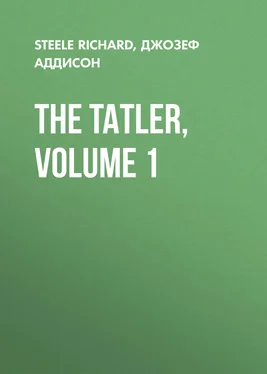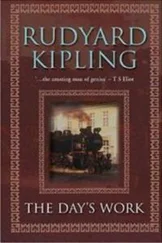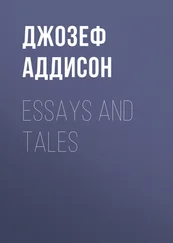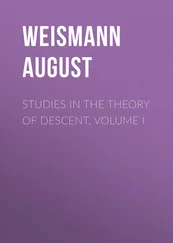Джозеф Аддисон - The Tatler, Volume 1
Здесь есть возможность читать онлайн «Джозеф Аддисон - The Tatler, Volume 1» — ознакомительный отрывок электронной книги совершенно бесплатно, а после прочтения отрывка купить полную версию. В некоторых случаях можно слушать аудио, скачать через торрент в формате fb2 и присутствует краткое содержание. Жанр: foreign_prose, foreign_antique, на английском языке. Описание произведения, (предисловие) а так же отзывы посетителей доступны на портале библиотеки ЛибКат.
- Название:The Tatler, Volume 1
- Автор:
- Жанр:
- Год:неизвестен
- ISBN:нет данных
- Рейтинг книги:4 / 5. Голосов: 1
-
Избранное:Добавить в избранное
- Отзывы:
-
Ваша оценка:
- 80
- 1
- 2
- 3
- 4
- 5
The Tatler, Volume 1: краткое содержание, описание и аннотация
Предлагаем к чтению аннотацию, описание, краткое содержание или предисловие (зависит от того, что написал сам автор книги «The Tatler, Volume 1»). Если вы не нашли необходимую информацию о книге — напишите в комментариях, мы постараемся отыскать её.
The Tatler, Volume 1 — читать онлайн ознакомительный отрывок
Ниже представлен текст книги, разбитый по страницам. Система сохранения места последней прочитанной страницы, позволяет с удобством читать онлайн бесплатно книгу «The Tatler, Volume 1», без необходимости каждый раз заново искать на чём Вы остановились. Поставьте закладку, и сможете в любой момент перейти на страницу, на которой закончили чтение.
Интервал:
Закладка:
St. James's Coffee-house, April 25
We are advised from Vienna, by letters of the 20th instant, that the Emperor hath lately added twenty new members to his Council of State, but they have not yet taken their places at the board. General Thaun is returned from Baden, his health being so well re-established by the baths of that place, that he designs to set out next week for Turin, to his command of the Imperial troops in the service of the Duke of Savoy. His Imperial Majesty has advanced his brother Count Henry Thaun to be a brigadier, and a Councillor of the Aulic Council of War. These letters import, that King Stanislaus and the Swedish General Crassau are directing their march to the Nieper, to join the King of Sweden's army in Ukrania: that the States of Austria have furnished Marshal Heister with a considerable sum of money, to enable him to push on the war vigorously in Hungary, where all things as yet are in perfect tranquillity: and that General Thungen has been very importunate for a speedy reinforcement of the forces on the Upper Rhine, representing at the same time, what miseries the inhabitants must necessarily undergo, if the designs of France on those parts be not speedily and effectually prevented.
Letters from Rome, dated the 13th instant, say, that on the preceding Sunday his Holiness was carried in an open chair from St. Peter's to St. Mary's, attended by the Sacred College, in cavalcade; and, after Mass, distributed several dowries for the marriage of poor and distressed virgins. The proceedings of that Court are very dilatory concerning the recognition of King Charles, notwithstanding the pressing instances of the Marquis de Prie, who has declared, that if this affair be not wholly concluded by the 15th instant, he will retire from that Court, and order the Imperial troops to return into the ecclesiastical state. On the other hand, the Duke of Anjou's minister has, in the name of his master, demanded of his Holiness to explain himself on that affair; which, it is said, will be finally determined in a consistory to be held on Monday next; the Duke d'Uzeda designing to delay his departure till he sees the issue. These letters also say, that the Court was mightily alarmed at the news which they received by an express from Ferrara, that General Boneval, who commands in Commachio, had sent circular letters to the inhabitants of St. Alberto, Longastrino, Fillo, and other adjacent parts, enjoining them to come and swear fealty to the Emperor, and receive new investitures of their fiefs from his hands. Letters from other parts of Italy say, that the King of Denmark continues at Lucca; that four English and Dutch men-of-war were seen off of Oneglia, bound for Final, in order to transport the troops designed for Barcelona; and that her Majesty's ship the Colchester arrived at Leghorn the 4th instant from Port Mahon, with advice, that Major-General Stanhope designed to part from thence the 1st instant with 6000 or 7000 men to attempt the relief of the Castle of Alicant.
Our last advices from Berlin, bearing date the 27th instant, import, that the King was gone to Linum, and the Queen to Mecklenburg; but that their Majesties designed to return the next week to Oranienburg, where a great chase of wild beasts was prepared for their diversion, and from thence they intend to proceed together to Potsdam; that the Prince Royal was set out for Brabant, but intended to make some short stay at Hanover. These letters also inform us, that they are advised from Obory, that the King of Sweden, being on his march towards Holki, met General Renne with a detachment of Muscovites, who placing some regiments in ambuscade, attacked the Swedes in their rear, and putting them to flight, killed 2000 men, the king himself having his horse shot under him.
We hear from Copenhagen, that, the ice being broke, the Sound is again open for the ships; and that they hoped his Majesty would return sooner than they at first expected.
Letters from the Hague, dated May the 4th, N.S., say that an express arrived there on the 1st from Prince Eugene to his Grace the Duke of Marlborough. The States are advised, that the auxiliaries of Saxony were arrived on the frontiers of the United Provinces; as also, that the two regiments of Wolfembuttel, and 4000 troops from Wirtemberg, which are to serve in Flanders, are in full march thither. Letters from Flanders, say that the great convoy of ammunition and provisions which set out from Ghent for Lille, was safely arrived at Courtray. We hear from Paris, that the King has ordered the militia on the coasts of Normandy and Bretagne to be in a readiness to march; and that the Court was in apprehension of a descent, to animate the people to rise in the midst of their present hardships.
They write from Spain, that the Pope's Nuncio left Madrid the 10th of April, in order to go to Bayonne; that the Marquis de Bay was at Badajos to observe the motions of the Portuguese; and that the Count d'Estain, with a body of 5000 men, was on his march to attack Gironne. The Duke of Anjou has deposed the Bishop of Lerida, as being a favourer of the interest of King Charles; and has summoned a convocation at Madrid, composed of the archbishops, bishops and states of that kingdom, wherein he hopes they will come to a resolution to send for no more bulls to Rome.
No. 8.
[STEELE.
From Tuesday, April 26. to Thursday, April 28 , 1709
Wills Coffee-house, April 26
The play of "The London Cuckolds" 143 143 A very coarse play by Edward Ravenscroft, produced in 1682, and often acted on Lord Mayors' days and other holidays.
was acted this evening before a suitable audience, who were extremely well diverted with that heap of vice and absurdity. The indignation which Eugenio, who is a gentleman of a just taste, has, upon occasion of seeing human nature fall so low in their delights, made him, I thought, expatiate upon the mention of this play very agreeably. "Of all men living," said he, "I pity players (who must be men of good understanding to be capable of being such) that they are obliged to repeat and assume proper gestures for representing things, of which their reason must be ashamed, and which they must disdain their audience for approving. The amendment of these low gratifications is only to be made by people of condition, by encouraging the presentation of the noble characters drawn by Shakespeare and others, from whence it is impossible to return without strong impressions of honour and humanity. On these occasions, distress is laid before us with all its causes and consequences, and our resentment placed according to the merit of the persons afflicted. Were dramas of this nature more acceptable to the taste of the town, men who have genius would bend their studies to excel in them. How forcible an effect this would have on our minds, one needs no more than to observe how strongly we are touched by mere pictures. Who can see Le Brun's 144 144 Charles Le Brun, who was born in 1619, and died in 1690, was the son of a sculptor, of Scotch extraction. Under Colbert's patronage he founded the Academy of Painting and Sculpture, at Paris, and he received many honours from Louis XIV. Le Brun's painting of the Defeat of Porus is 16 feet high and 39 feet 5 inches long.
picture of the Battle of Porus, without entering into the character of that fierce gallant man, 145 145 Porus was an Indian king who was defeated and put to death by Alexander the Great. See Q. Curtius, viii. 12, 14.
and being accordingly spurred to an emulation of his constancy and courage? When he is falling with his wound, the features are at the same time very terrible and languishing; and there is such a stern faintness diffused through his look, as is apt to move a kind of horror, as well as pity, in the beholder. This, I say, is an effect wrought by mere lights and shades; consider also a representation made by words only, as in an account given by a good writer: Catiline in Sallust makes just such a figure as Porus by Le Brun. It is said of him, 'Catilina vero longe a suis inter hostium cadavera repertus est; paululum etiam spirans, ferocitatemque animi quam vivus habuerat in vultu retinens.' 146 146 "Bell. Catil." cap. 61.
('Catiline was found killed far from his own men among the dead bodies of the enemy: he seemed still to breathe, and still retained in his face the same fierceness he had when he was living.') You have in that one sentence, a lively impression of his whole life and actions. What I would insinuate from all this, is, that if the painter and the historian can do thus much in colours and language, what may not be performed by an excellent poet, when the character he draws is presented by the person, the manner, the look, and the motion, of an accomplished player? If a thing painted or related can irresistibly enter our hearts, what may not be brought to pass by seeing generous things performed before our eyes?" Eugenio ended his discourse, by recommending the apt use of a theatre, as the most agreeable and easy method of making a polite and moral gentry, which would end in rendering the rest of the people regular in their behaviour, and ambitious of laudable undertakings.
Интервал:
Закладка:
Похожие книги на «The Tatler, Volume 1»
Представляем Вашему вниманию похожие книги на «The Tatler, Volume 1» списком для выбора. Мы отобрали схожую по названию и смыслу литературу в надежде предоставить читателям больше вариантов отыскать новые, интересные, ещё непрочитанные произведения.
Обсуждение, отзывы о книге «The Tatler, Volume 1» и просто собственные мнения читателей. Оставьте ваши комментарии, напишите, что Вы думаете о произведении, его смысле или главных героях. Укажите что конкретно понравилось, а что нет, и почему Вы так считаете.












